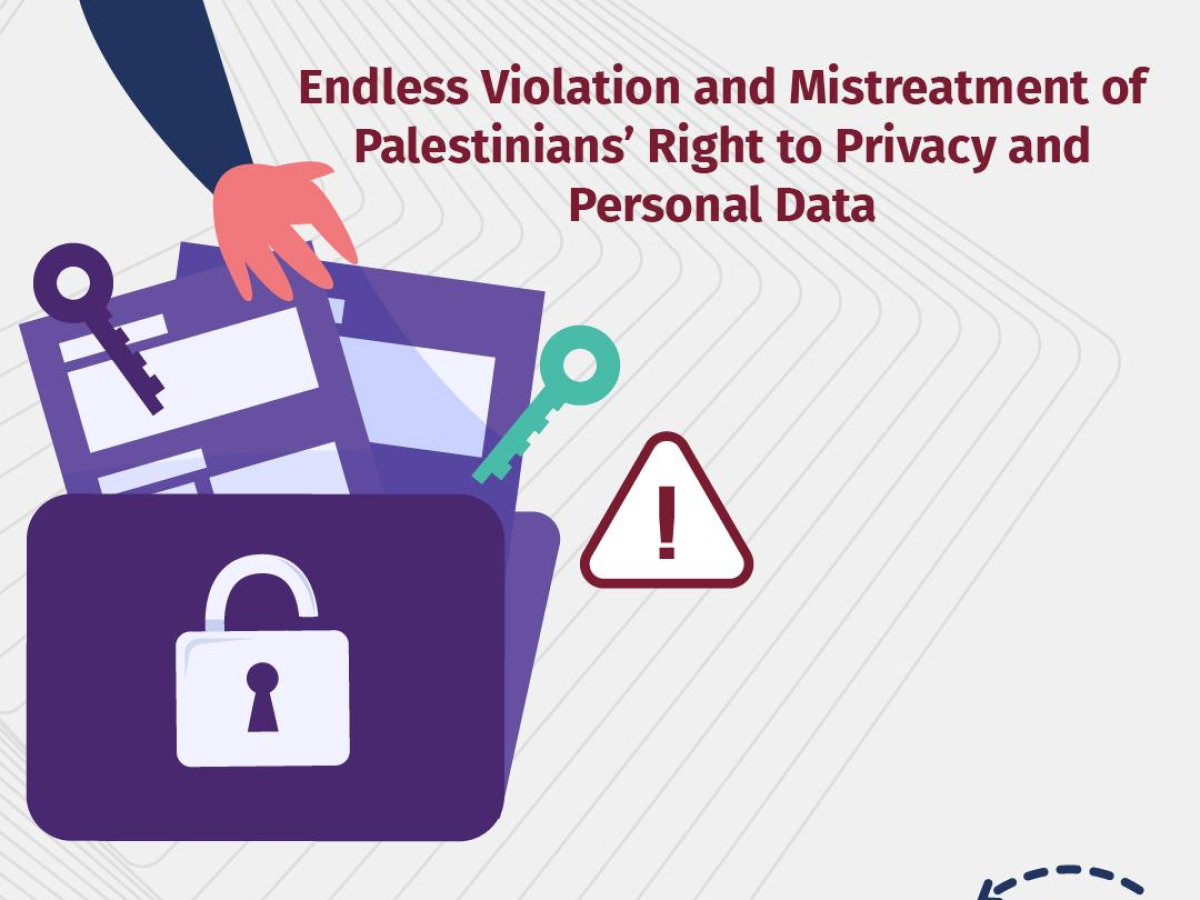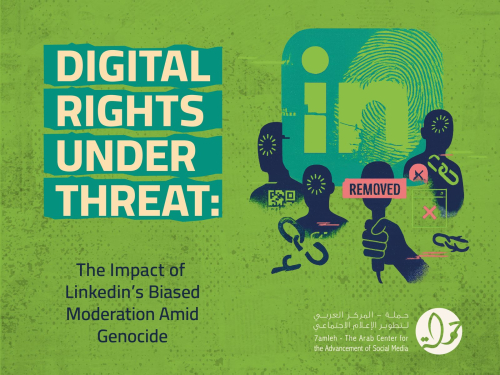
The concept of privacy and personal space is intrinsically connected to human rights and freedom framework, and democratic atmosphere. Infringement of privacy, by any party, must be impermissible. This is especially true considering the technological revolution, the age of digitalization, and the expansion of the international data system. The need for protective solutions for the massive data available through the Internet has grown. Despite being private and personal, this data is often used without the permission of its owners, which is a clear infringement of individuals' privacy rights.
Palestinians are languishing under the weight of the Israeli occupation; they are denied their collective and individual rights and freedom. The right to privacy is one of the rights that are outrageously violated as safeguarding personal data becomes increasingly difficult. The most prominent challenges to privacy for Palestinians living in the occupied Palestinian territory are (oPt) posed by the Israeli authorities. However, despite the magnitude of such challenges, the practices of the Palestinian Authority (PA), and the violations it allows and neglects, adds up to the internal infringement of personal data. The PA is responsible for the encroachment of security services into civilian life; the lack of imposition of decisive policies; lack of legislation based on a human rights approach; lack of accountability for privacy breach; the private sector’s exploitation of people’s data. The PA’s practices pose additional concern, and an undeniable double challenge to obtaining Palestinian rights, especially the right to privacy.
The purpose of this paper was to provide an overview of the right to privacy, with focus on personal data, in the oPt. In this paper, shortcomings in Palestinian legislation, and practices were discussed, a clear position on the Palestinian right to privacy was stated, and recommendations and procedures to address existing issues were proposed. Furthermore, the importance of enacting legislation to protect and regulate the right to privacy, including personal data and particularly digital data, were addressed. In addition, 7amleh examined the required, independent standards, systems, regulations, and procedures that guarantee the implementation of the right to privacy, obligate the responsible authorities to monitor and hold perpetrators accountable, and hold decision-makers responsible.
The position of 7amleh – The Arab Center for the Advancement of Social Media, which was reflected in this paper, is based on the importance of aligning the Palestinian situation and legislation with the main principles included in the Palestinian Basic Law and international human rights covenants and treaties that the State of Palestine has agreed to without reservation. In addition, they should be in line with the European General Data Protection Regulation (GDPR), the most comprehensive international reference on the context of personal data.
Check out the full Position Paper: Click here
Related Articles
Subscribe to Our Email Alerts
And stay updated with our latest activities, news, and publications!








